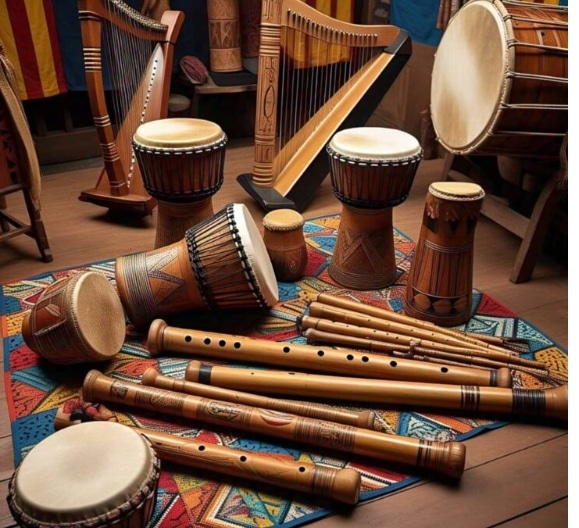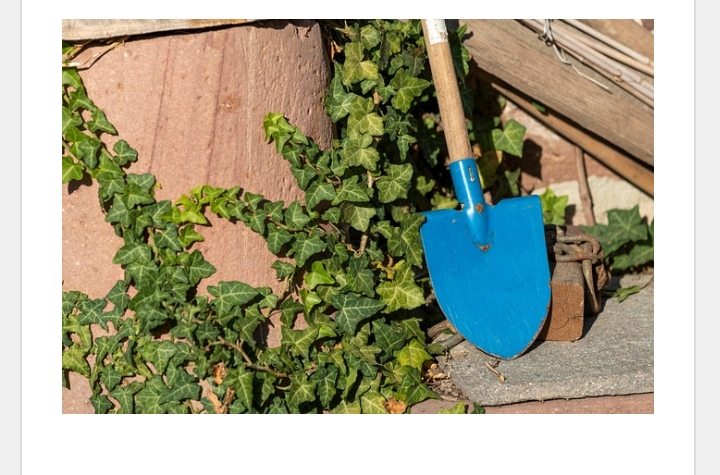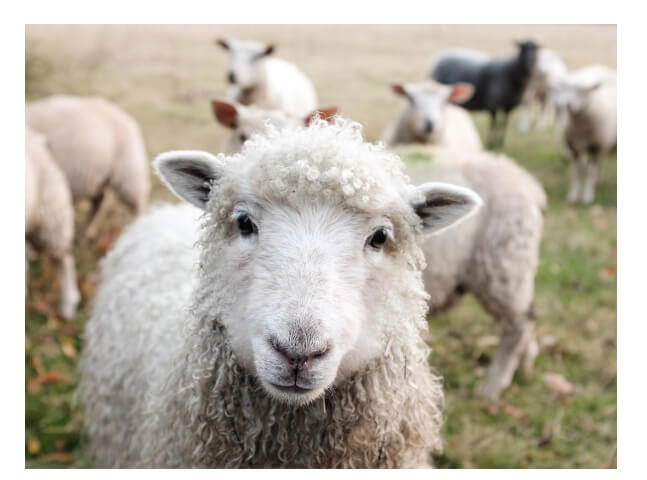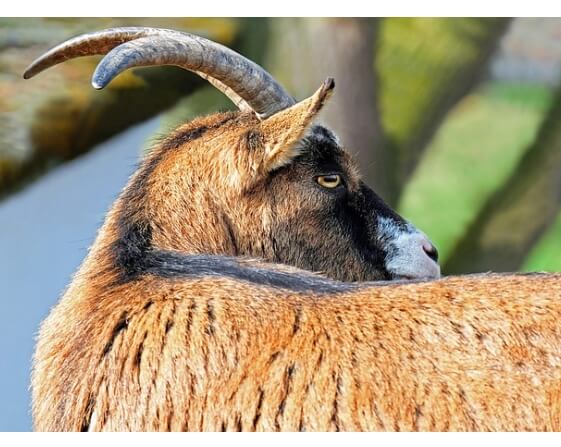Primary 5 Agricultural Science – Third Term
Week 3: Procedures for Rearing Farm Animals
Steps & Tools for Rearing Farm Animals Successfully
Lesson Overview
-
Subject: Agricultural Science
-
Class: Primary 5
-
Term: Third Term
-
Week: 3
-
Age: 9 – 11 years
-
Topic: Procedures for Rearing Farm Animals
-
Sub-topic: Steps and Tools for Rearing Farm Animals
-
Duration: 40 minutes
Behavioral Objectives
By the end of this lesson, pupils should be able to:
1️⃣ List the steps involved in raising farm animals.
2️⃣ Identify the tools needed to raise farm animals.
3️⃣ Demonstrate the procedures for rearing farm animals on the school farm.
Keywords
✅ Rearing
✅ Farm animals
✅ Shelter
✅ Feeding
✅ Vaccination
✅ Tools
✅ Disease control
Set Induction (Funny Classroom Moment)
Teacher: Class, who has seen a baby chick before?
Tunde: Yes, ma! It was following its mother everywhere!
Amaka: Ma, I tried to carry one, but its mother chased me!
Chinedu: Goats are funny too, ma. My uncle’s goat ate my homework!
(Class laughs!)
Teacher: Today, we’ll learn how to take care of farm animals properly so they don’t chase or eat our homework!
Entry Behavior
-
Pupils have seen or interacted with farm animals before.
-
Some may have pets at home, like chickens, goats, or rabbits.
Learning Resources & Materials
Pictures of farm animals
Videos of farmers rearing animals
Models of farm tools
A small school farm or an area for demonstration
Building Background/Connection to Prior Knowledge
Teacher: Remember last week, we discussed the different farm animals we can rear. Now, let’s see how to take care of them properly so they stay healthy and productive.
Ada: Like feeding them so they don’t get hungry?
Bayo: And keeping them in a house so they don’t run away!
Teacher: Exactly! But there’s more. Let’s find out!
Embedded Core Skills
✅ Observation
✅ Critical Thinking
✅ Communication
✅ Teamwork
✅ Hands-on Practical Skills
Instructional Materials
-
Charts of different farm animals
-
Videos showing animal rearing
-
Pictures of farm tools
-
Real farm tools (feeders, drinkers, vaccination syringes)
Steps & Tools for Rearing Farm Animals Successfully
Rearing farm animals successfully involves careful planning, dedication, and the right set of tools to ensure that the animals are well taken care of and productive. Below is a practical guide on the steps to take and the tools you’ll need to rear farm animals effectively, drawn from real-life experiences and practical tips.
Step 1: Prepare Adequate Housing
Why It Matters
Each farm animal requires a suitable shelter to protect them from the elements, predators, and disease. Proper housing is crucial for their health and productivity.
Tools You Need:
Fencing: Strong and durable fences are necessary to keep animals safe and prevent them from straying.
Shelter (Barns, Cages, and Pens): Ensure that animals have enough space to move freely, sleep, and protect themselves from harsh weather.
Heating/Cooling Systems: Depending on the climate, you might need heating for cold weather or fans for warmer climates.
Personal Experience:
Growing up on a farm, I’ve seen firsthand how proper shelter can make a huge difference in the overall well-being of animals. My father would always make sure the cows had sturdy barns to shield them from the rain, especially during the heavy downpours in the rainy season. It was always about ensuring they were safe, comfortable, and free from disease risks.
Step 2: Ensure Proper Nutrition and Feeding
Why It Matters
Farm animals need a balanced diet to stay healthy, grow properly, and be productive. Proper nutrition is vital for their reproductive health, energy, and overall performance.
Tools You Need:
Feeders and Waterers: Automatic or manual systems that provide a consistent supply of food and water.
Storage Containers: To store feed securely and keep it free from pests and moisture.
Supplemental Feed: Depending on the species, you may need mineral supplements, protein, or grain for optimal growth.
Personal Experience:
I learned the importance of proper feeding when we had a herd of goats. My mom always emphasized the right balance of grass, grains, and fresh water. There was one particular goat, “Sunny,” who thrived on a special mix of feed and always had the energy to play with the kids, making it clear that nutrition truly impacts their mood and behavior.
Step 3: Provide Regular Health Care and Monitoring
Why It Matters
Just like humans, farm animals require regular health checks to prevent diseases and ensure longevity. Monitoring their behavior and body condition helps identify health issues early.
Tools You Need:
Veterinary Kit: This should include essential medications, vaccines, and disinfectants.
Digital Thermometer: For measuring body temperature to detect fever in case of illness.
Dewormers and Vaccines: Keep a regular schedule for deworming and vaccinations to prevent common diseases.
Scale: A scale is essential for monitoring the weight of your animals, ensuring they are growing at a healthy rate.
Personal Experience:
I once worked on a farm that experienced an outbreak of mastitis in a few cows. Thankfully, we had a basic veterinary kit ready, which included antibiotics and sanitizing agents. The timely treatment we provided saved the cows and their milk production, teaching me how vital it is to stay prepared.
Step 4: Breeding Management
Why It Matters
For those who wish to expand their farm or produce livestock, breeding management is crucial. Successful breeding ensures that you have healthy offspring and manage your farm’s growth.
Tools You Need:
Breeding Records: Maintain a system for tracking mating dates, animal health, and birth dates.
Artificial Insemination Tools (if applicable): For specific breeds, artificial insemination might be necessary.
Separate Pens for Mating: Ensure you separate males and females until breeding is intended to prevent unplanned pregnancies.
Personal Experience:
I vividly remember the excitement of seeing the first lamb born on our farm. It wasn’t just about the birth but also the careful planning that went into it, from choosing the right ram to ensuring both the ewe and lamb received the right care post-birth. Breeding is not always straightforward, but the rewards are worth it when done properly.
Step 5: Manure Management
Why It Matters
Animal manure is a valuable resource that can be used to fertilize crops, but it also needs to be handled carefully to avoid contamination of water sources and disease outbreaks.
Tools You Need:
Manure Spreaders: Tools for evenly distributing manure over fields or garden beds.
Compost Bins: For composting manure, turning it into nutrient-rich fertilizer.
Shovels and Wheelbarrows: For moving manure to composting areas or spreading it directly.
Personal Experience:
Growing up, we used cow manure as a natural fertilizer for our vegetable garden. My father was meticulous in composting it, mixing it with plant waste and leaves. It’s an amazing way to recycle waste into something beneficial, not to mention how it kept our crops healthy year after year.
Step 6: Regular Record-Keeping
Why It Matters
Tracking everything from feeding schedules to breeding dates and medical treatments helps you stay organized and spot patterns over time. Record-keeping is essential for efficient farm management and identifying any areas that need attention.
Tools You Need:
Notebook or Farm Management Software: A simple notebook works well for small farms, but as your operation grows, farm management software can help you stay on top of things.
Calendar: A calendar is a helpful tool to mark key dates such as vaccinations, breeding cycles, and expected births.
Photos and Notes: For tracking the progress of each animal and any medical conditions they might face.
Personal Experience:
I’ve found that writing everything down, even the smallest details like the exact type of feed an animal received, has helped me solve problems much faster. One year, we had a particularly sluggish cow, and looking back at the records helped us pinpoint that we hadn’t been feeding her the right amount of calcium. Record-keeping is not just practical; it’s crucial for making informed decisions.
Step 7: Protecting Your Farm from Predators
Why It Matters
Predators can cause serious harm to your livestock, especially when they’re young or vulnerable. Protecting your animals from such threats is critical to maintaining a healthy, productive farm.
Tools You Need:
Electric Fencing: To keep predators like coyotes or wild dogs away.
Guard Animals: Certain animals, such as dogs or even llamas, can be effective guards.
Nighttime Lighting: Some farmers use motion-activated lights to scare away predators at night.
Personal Experience:
In our community, farmers have faced challenges with wild dogs that roam at night. After losing a few chickens, my neighbor invested in a guard dog, which worked wonders. The peace of mind it gave him was invaluable, as his farm animals were now safe to roam freely without the constant fear of predators.
Conclusion
Rearing farm animals is an enriching, yet demanding responsibility. By preparing adequately, maintaining good health practices, and utilizing the right tools, you can set yourself up for success in animal husbandry. Each step plays a vital role in ensuring that your animals thrive, from proper shelter to nutrition, health care, and breeding management.
For me, farming has always been a blend of hard work, patience, and learning from each experience. The lessons I’ve gained have helped me not just on the farm but in everyday life — from taking care of those I’m responsible for to making decisions with a long-term view.
Lesson Content
Step 1: Selecting the Right Animal to Rear
Before starting, a farmer must decide which animal to rear.
Poultry (Chickens, Ducks, Turkeys)
Livestock (Goats, Cows, Sheep)
Aquatic (Fish, Snails)
Teacher: What animals do you think are easiest to rear?
Chinedu: Chickens, because they don’t run away like goats!
Step 2: Providing Shelter
-
Animals need a safe home to protect them from bad weather, thieves, and predators.
-
Examples of shelters:
Chicken coop for poultry
Pen for goats and sheep
Fish pond for fish
Lola: Ma, can I keep a goat in my room?
Teacher: No, Lola! Goats need open space, not a bed!
Step 3: Feeding the Animals
-
Farm animals need food and clean water to grow well.
-
Common feeds:
Chickens eat grains and insects.
Goats eat grass and leaves.
Cows eat hay, grass, and special feeds.
Tunde: So cows are vegetarians?
Teacher: Yes! They don’t eat rice like you do!
Step 4: Keeping Animals Healthy
-
Farmers vaccinate animals to prevent diseases.
-
Sick animals need medicine from a vet.
-
Cleaning the shelter stops germs from spreading.
Teacher: How do we know an animal is sick?
Emeka: When it doesn’t eat or looks tired!
Teacher: Very good!
Step 5: Using the Right Tools for Rearing Farm Animals
Farmers use tools to take care of animals properly.
Feeder – Holds food for animals.
Water trough – Holds drinking water.
Vaccination syringe – For giving vaccines.
Spade – To clean animal houses.
Chidi: Ma, do chickens use plates to eat?
Teacher: No! They use feeders, not dinner plates!
Class Activity (FAQ for Discussion)
1️⃣ What are the steps to rear farm animals?
2️⃣ Why do animals need shelter?
3️⃣ What kind of food do cows eat?
4️⃣ How do farmers prevent animals from getting sick?
5️⃣ Why do farmers vaccinate animals?
6️⃣ What tools are needed for rearing chickens?
7️⃣ What happens if farm animals don’t have water?
8️⃣ What is the best shelter for goats?
9️⃣ Can fish be reared at home? How?
How do farmers clean animal shelters?
1️⃣1️⃣ What is the best way to handle a sick animal?
1️⃣2️⃣ Why do we keep farm animals?
1️⃣3️⃣ Can farm animals live without food?
1️⃣4️⃣ Why do farmers use feeders?
1️⃣5️⃣ What’s the difference between a vet doctor and a farmer?
Fill-in-the-Blank Questions (For Assessment)
1️⃣ _______ are animals kept for food or money. (Farm animals)
2️⃣ Chickens are kept in a _______. (Coop)
3️⃣ Farmers feed goats with _______. (Grass)
4️⃣ A _______ is used to give animals vaccines. (Syringe)
5️⃣ _______ are used to hold water for animals. (Water troughs)
6️⃣ Farmers use _______ to clean animal houses. (Spade)
7️⃣ A _______ takes care of sick animals. (Vet doctor)
8️⃣ Fish are kept in a _______. (Pond)
9️⃣ Farmers vaccinate animals to prevent _______. (Diseases)
Cows eat _______ and grass. (Hay)
FAQ for Discussion (with Realistic Student Responses)
-
What are the steps to rear farm animals?
-
Select the type of animal to rear.
-
Provide a suitable shelter.
-
Feed the animals properly.
-
Keep the animals healthy through vaccination and proper care.
Tunde: “First, you choose the animal, then build a house for it, feed it, and take care of it.”
-
-
Why do animals need shelter?
-
To protect them from bad weather (rain, sun, cold).
-
To keep them safe from predators and thieves.
-
To provide a comfortable space for them to grow well.
Aisha: “So they don’t get cold, wet, or eaten by wild animals.”
-
-
What kind of food do cows eat?
-
Cows eat grass, hay, and special cattle feed.
-
They also drink a lot of water.
Emeka: “Cows eat plenty of grass and drink water all the time.”
-
-
How do farmers prevent animals from getting sick?
-
By giving them clean food and water.
-
By keeping their shelter clean.
-
By vaccinating them against diseases.
Fatima: “Farmers clean their houses and give them medicine when needed.”
-
-
Why do farmers vaccinate animals?
-
To protect them from deadly diseases.
-
To ensure they grow healthy and strong.
Musa: “Just like people take injections to avoid sickness, animals need vaccines too.”
-
-
What tools are needed for rearing chickens?
-
Feeder (for food).
-
Water trough (for drinking water).
-
Vaccination syringe (for medicine).
Blessing: “A feeder for their food, a drinker for water, and a small house to live in.”
-
-
What happens if farm animals don’t have water?
-
They become weak and sick.
-
They stop eating and may die.
Chisom: “They will get thirsty, weak, and may not grow well.”
-
-
What is the best shelter for goats?
-
A pen or fenced area with a small shed.
-
It should be clean and well-ventilated.
Segun: “A pen where they can stay and still walk around.”
-
-
Can fish be reared at home? How?
-
Yes, in a fish pond or large container with clean water.
-
They need proper feeding and care.
Olamide: “Yes! My uncle has a small fish pond in his backyard.”
-
-
How do farmers clean animal shelters?
-
By removing waste regularly.
-
By washing and disinfecting the area.
Zainab: “They sweep the place and wash it so it doesn’t smell bad.”
-
What is the best way to handle a sick animal?
-
Separate it from the healthy ones.
-
Call a vet for proper treatment.
David: “Take the animal to the doctor, just like we go to the hospital.”
-
Why do we keep farm animals?
-
For food (milk, eggs, meat).
-
For money (selling animals and their products).
Esther: “To get eggs, meat, and milk, and also to sell them.”
-
Can farm animals live without food?
-
No, they will become weak and may die.
Mohammed: “No! Just like humans, animals must eat every day.”
-
Why do farmers use feeders?
-
To keep food clean and prevent wastage.
Chioma: “So the animals don’t scatter the food everywhere.”
-
What’s the difference between a vet doctor and a farmer?
-
A vet doctor treats sick animals.
-
A farmer raises and takes care of animals.
Tope: “A vet doctor gives medicine, but a farmer feeds and takes care of animals.”
Presentation Steps
1️⃣ Introduction – Engage pupils with questions and funny responses.
2️⃣ Explanation – Teach steps for rearing farm animals.
3️⃣ Demonstration – Show tools and their uses.
4️⃣ Practical Session – Visit the school farm (if available).
5️⃣ Assessment – Ask questions and give exercises.
Assessment & Evaluation
✅ Pupils identify different farm animals.
✅ Pupils list steps for rearing animals.
✅ Pupils name tools used in animal rearing.
Conclusion
Teacher: Taking care of farm animals is very important. If we feed them well, keep them in a clean place, and take care of their health, they will grow well and give us food like eggs, milk, and meat!












